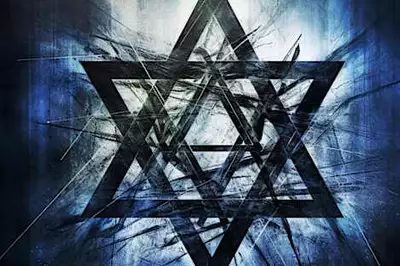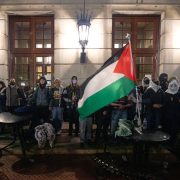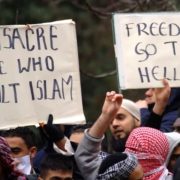How American College Campuses Became the Islamo-Leftists’ Playground
This article was originally published in the Jerusalem Post on March, 23rd 2025.
What do a Yale scholar, a Columbia student, a Georgetown researcher, 60 colleges and universities under investigation for relentless antisemitic eruptions, and Hamas – have in common?
In traditional times, the answer should be absolutely nothing. Institutions like Yale, Harvard, UPenn, Georgetown, and Columbia were once guardians of liberal democratic values, committed to fighting hatred and violence. Yet, today, this is far from the case.
A dangerous alliance has formed between the progressive movement in the United States and radical Muslim groups, using the guise of victimhood to create an anti-American coalition. Though antisemitic and anti-Israel at its core, the ultimate goal of this Red-Green coalition is far broader: the systematic destruction of America from within.
To accomplish its goal the movement has exploited American institutions, using democracy itself as a tool to undermine the very values that have made the United States the world’s most successful democracy.
The Long Game: Indoctrination and Radicalization
For years, the Islamo-Leftist alliance has been laying the groundwork to infiltrate academia. Starting with faculty and staff before trickling down to students. With foreign funding funneled into higher education institutions, this campaign of radicalization has steadily gained ground. The results became undeniable after the Hamas – October 7 barbaric attack on Israel, when the alliance mobilized in force, targeting America and its closest ally, Israel.
Over the past several years, the Red-Green network of terror sympathizers have systematically radicalized young minds, fostering a generation that views America as an illegitimate entity. They push for open borders, the abolition of law and order, and the delegitimization of democratic governance – all under the banner of “justice” and “liberation.” But their goals are clear: to dismantle the very foundations of American society.
The consequences are visible. Radicalized student mobs have stormed administrative offices, taken over campus buildings, and issued violent threats against those who dare to dissent. Freedom of speech has been suffocated, unless it aligns with the Islamo-Leftist narrative.
The Terror Connection: The Threat Within
We now have evidence linking these radical campus activists to terror groups openly calling for the destruction of America.
Consider Helyeh Doutaghi, an Iranian academic recently suspended from Yale for her involvement with Samidoun, a U.S.-designated terrorist entity. Doutaghi has openly called for a fight against America and the overthrow of its so-called “dictatorship.”
Then there’s Khalil Mahmood and Columbia University Apartheid Divest (CUAD), a student-led initiative that seeks to dismantle both Israel and the United States. CUAD views America as an imperialist power, referring to their own activism as a fight from “within the belly of the beast.” Mahmood and CUAD activists have led aggressive protests, disrupted campus events, and pressured universities to cut ties with pro-American institutions.
Now, Mahmood’s legal case has become a rallying cry for leftist activists, who misleadingly frame it as a free speech issue while conveniently ignoring his open hostility toward the United States. His support among the progressive left underscores the extent to which the Islamo-Leftist alliance has gained influence, shaping the next generation of political extremists.
The Collapse of the Progressive Movement
The progressive movement has long harbored radical elements, but for many years, they remained on the fringes. Today, however, the radicals are no longer on the fringe, they are setting the agenda.
Leading progressive organizations now openly embrace slogans like “Globalize the Intifada” and “Bring Down the Empire.” Many young students chant these phrases without understanding their true meaning, believing they are fighting for “justice.” Yet these are not metaphors. The Red-Green radicals themselves admit they are direct calls for violence against American citizens.
At its core, the movement’s anti-American rhetoric represents a direct attack on the principles that define this nation. The United States was founded on liberty, democracy, and the rule of law, principles that have made it the freest and most prosperous country in history. But the Islamo-Leftist alliance sees these values as obstacles to its agenda. It embraces socialism, authoritarianism, and the suppression of free speech through intimidation and mob violence.
By radicalizing young Americans through university protests and social media propaganda, this movement is fueling a domestic insurgency designed to destabilize the nation from within.
The Global Threat: The Islamo-Leftist Alliance and Foreign Adversaries
This movement is not just a campus issue. It is a national security threat. It aligns itself with America’s foreign adversaries, openly supporting authoritarian regimes like China, Iran, Qatar, and Venezuela while demonizing U.S. foreign policy.
Radical activists in the U.S. describe American military efforts against Hezbollah and the Houthis, both designated as terrorist organizations, as “American terrorism.” Their hostility toward national sovereignty is evident in their push for open borders, knowing full well that a country without borders ceases to be a country at all. This is not about humanitarianism; it is about eroding America’s strength, identity, and ability to defend itself.
The Fight for America’s Future
The radicalization of American academia is no longer a fringe issue. It is a clear and present danger to national security. What we see on college campuses is a symptom of a larger problem: an organized effort to undermine America from within.
Universities, media outlets, and political institutions must stop legitimizing these extremist groups in the name of free speech. Law enforcement must take decisive action against those inciting violence. And American citizens must recognize that this fight is not about Jews or Israel – it is about the future of the United States itself.
By exposing and holding these extremists accountable, we can ensure that America remains a beacon of democracy and freedom. It is time for Americans to unite in defense of our country, reaffirm our commitment to its founding ideals, and resist the forces seeking to divide and destroy us. The future of the nation depends on it.












